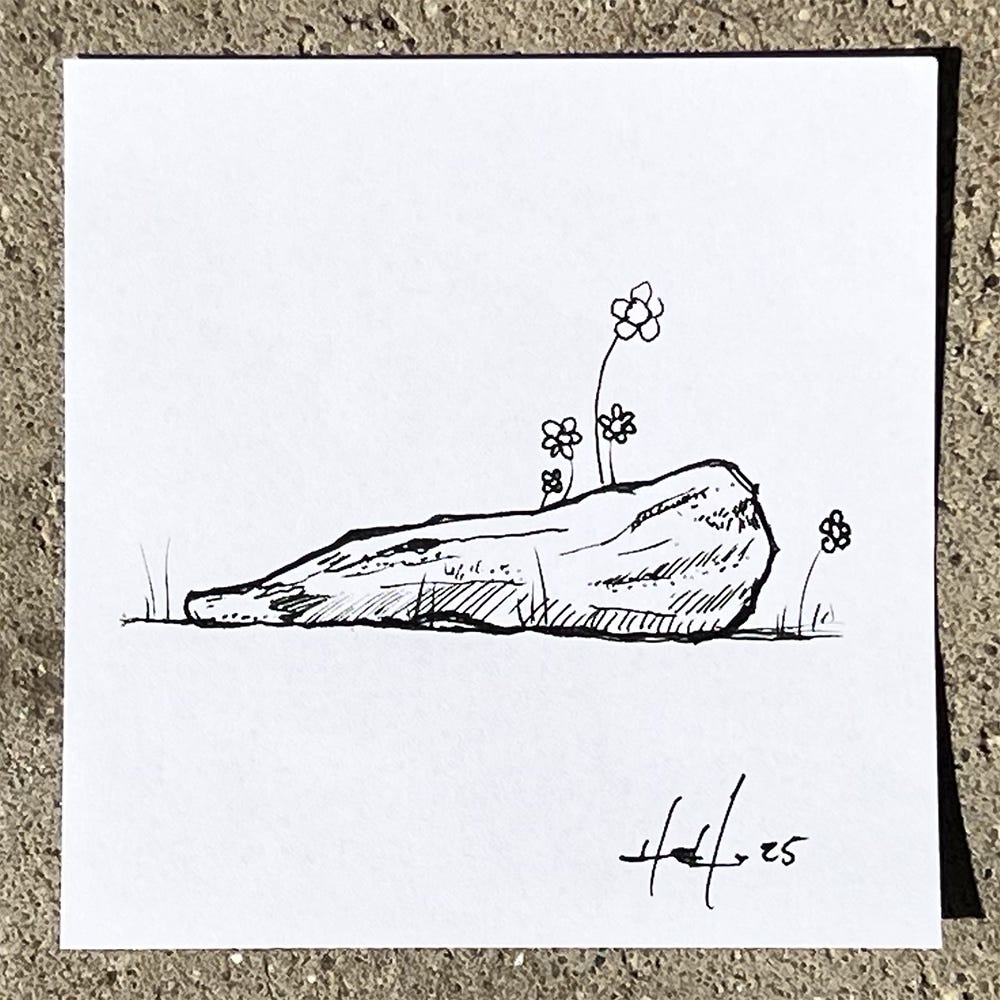I am on the precipice of 50, my friends, and this means I’m basically about 17 years old in caveman years, the perfect age to make my appearance on the world literary stage as either a gray-haired Rimbaud or a slightly verbose Hemingway. As I am releasing my “first” novel in the next couple weeks, I thought, “What better way to celebrate than to show how I spent 30 years not finishing this book or its 11 siblings.” Now, I’ll be the first to admit that I should probably give you excerpts of the upcoming book instead, or maybe even talk about my process or drafts, but no, I’m going to do something that might accidentally prevent you from ever wanting to look at the book. I’m going to show you where I went wrong, over and over again. Whether you’re 50 or 17, you may find a few familiar moments here and there. Here we go.
Several weeks ago, I realized that I’ve been writing essays about art and literature and movies (i.e., essays about myself) since I was a baby caveman (the math is getting harder, but let’s say around twenty Homo sapiens years old). This I did instead of finishing my novels. These essays allowed me to call time spent reading books and watching movies “my work.” I was a master at propagating juvenilia even into middle age. I had endless opinions and big ideas about every book, author, and movie I encountered, and, like most children with big ideas, I was full of wonder at my own ingenuity, agog at the things I created just by breathing out of my mouth and typing into a computer screen. I had trained my fingers to move as fast as my brain, which is either a testament to my dexterity or evidence that I’m not as smart as I think I am. I type about 85 words per minute, which might as well be a stand-in for IQ at this point.
As a late bloomer—back then I told myself that 25 was the new 13—I sententiously called my literary and artistic plights a “struggle”. This was long before Karl Ove Knausgaard did the same thing with more irony and Nobels than I ever could. I was a gas at parties, bringing up my artistic angst at every opportunity, slinging metaphors at friends I mistook for windmills. Eventually realizing that friends should be friends instead of enforced schoolmates, I pursued my craft in a more solitary fashion. But books brought even more struggles. Sure, they can improve one’s writing almost by osmosis, and rhythms from Nabokov or staccato shots from Pound were easy to replicate, but I strove daily to grasp nuance, let alone release it into a graceful sentence. I could point at a rock, but I couldn’t tell you why I was pointing. Giants creaked in the distance, but I thought they were windmills, and so ignored them. I eventually understood how to make a metaphor sing, but I rarely found the right tune for it. Instead of trimming sentences, I gifted them 19th century forms that had lost relevance before Dickens reached the mid-century mark. So I would read another book, expectant, brow furrowed. Sometimes, this mental tempest would pop out a decent, if over-written, thought. Sometime in 1999, I wrote:
“I am the puppet, whose strings are pulled by the fingers of those who have gone before. I stand not on the shoulders of giants, I am moved beneath their palms by fingers which randomly twitch long after death has consumed them. And if I am the puppet of a dead man named Samuel Johnson, then he is the puppet of a man named Aristotle. We are each animated by the other, the living by the corpse heap, the corpse by slow-decaying memory.”
Today I read those words with a redness in my cheeks, either from staring too long at the sunset of my youth or in frank embarrassment. “I am the puppet,” I declared from the midst of the storm, but I wasn’t: I wanted to be the puppet, but I knew instead that I was something raw and primitive. In that little essay, I begged to be noticed by a puppeteer, any puppeteer, really, who might take me under their protective hands and help me move in a way that at least resembled Writer. The desperation grew over time, because if the puppeteer caught me up, it meant that the potential I saw in my own work might be seen by others, too, bringing it to life. A puppeteer would prove that these struggles, these efforts, these honest-to-goodness drafts might someday maybe result in something. My earnestness, unwelcome when the beer and cigarettes were flowing, was a precious, motivating force that I ought to have protected and nurtured, but I released it too often into the faces of unsuspecting sailors who hadn’t expected to end up on Prospero’s beach with a half-empty bottle of beer in their hands. A tempest is incapable of subtlety, and probably less so of humility. I was a caveman who could see, in the fields of his mind, the stalks of flowers just coming up through the grasses; but the sight of those flowers only made me grip my club tighter and look for something to smash. If we writers are lucky enough, though, we might continue writing long enough to one day see that field burst with flowers, and maybe then we can step into it with a quiet mind, prepared to listen and let the words rest a little.
If you haven’t already, subscribe for free to get these short essays 2 or 3 times a month. Not too shabby!


